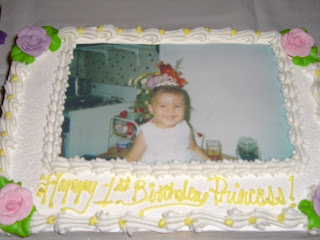So I was having a conversation with a friend of mine who is very sure that faith is something for people who's personalities lean toward that - people who are naturally inclined to "religion" etc. She concluded that she, being more rational, was not the "type" of person to have faith. I didn't want to say anything too quickly (ah lessons I've learned the hard way - and am still learning), so I told her, after laughing at her, that I'd get back to her with a real answer.
So in this quiet moment, I've been trying to think about what I should say. Well, not so much what I
should say that would make me right, but what does she need. Mother Teresa had such a nack for that, you know? Sometimes she didn't answer questions directly, but what she did say profoundly impacted her interviewer and their life was changed. Now, why did she have to go and die on me, eh?
I just remembered one of my favorite commentators on faith, C.S. Lewis, and if you can bear with a long-ish excerpt from his fabulous book
Mere Christianity I think we can find some gold here.
(When referring to his old view of faith) "I was assuming that if the human mind once accepts a thing as true it will automatically go on regarding it as true, until some real reason for reconsidering it turns up. In fact, I was assuming that the human mind is completely ruled by reason. But that is not so. For example, my reason is perfectly convinced by good evidence that anaesthetics do not smother me and that properly trained surgeons do not start operating until I am unconscious. But that does not alter the fact that when they have me down on the table and clap their horrible mask over my face, a mere childish panic begins inside of me. I start thinking I am going to choke amd I am afraid they will start cutting me up before I am properly under. In other words, I lose my faith in anaesthetics. It is not reason that is taking away my faith: on the contrary, my faith is based on reason. It is my imagination and emotions. The battle is between faith and reason on one side and emotion and imagination on the other.....or take a boy learning to swim. His reason knows perfectly well that an unsupported human body will not necessarily sink in water: he has seen dozens of people float and swim. But the whole question is whether he will be able to go on believing this when the instructor takes away his hand and leaves him unsupported in the water - or whether he will suddenly cease to believe it and get in a fright and go down.That's the ticket. Faith is deciding to believe what you KNOW to be true, even when my wishy-washy emotions begin to doubt. I have moments when I feel so utterly "less" than I need to be as a wife, mother, friend...the list goes on and on. But I KNOW to be true that God has given me "everything [I] need for life and godliness". Faith is the decision to believe that and to view my world through those lenses. And, you know, I start to act differently then. My decisions, laced with a confidence that comes from a source outside of me, end up being the "right" ones. It's people who have removed themselves from their humanity, who have summed up their lives to a science, that see faith as "brainwashing". I know my fraility too well to not have faith. It's those who want to live by what they KNOW is true and not just by what they "feel" who are rational enough live by faith.
Okay. Next post will most likely not be so deep. I think Adam has run out of distractions with Elasia, and I should be getting her to bed anyway. bye.






















